
Smart Friends
Eric Jorgenson
- 57 minutes 15 seconds#085 Ben Reinhardt: How to Discover New Technology, Playing the Longest Game, and Philanthropy in Technology
Topics:
(00:00:00) - Intro
(00:05:25) - Studying both Medieval History and Engineering
(00:09:48) - Founding Speculative Technologies
(00:11:25) - Defining “Useful” in Science and Technology
(00:13:46) - Building the roadmap of discoveries to unlock futuristic tech
(00:17:24) - The need for new institutions
(00:25:22) - Why focus on material science and manufacturing technologies
(00:46:57) - The day-to-day work and impact of Speculative Technologies
Links:
To support the costs of producing this podcast:
>> Buy a copy of the Navalmanack: www.navalmanack.com/
>> Buy a copy of The Anthology of Balaji: https://balajianthology.com/
>> Sign up for my online course and community about building your Personal Leverage: https://www.ejorgenson.com/leverage
>> Invest in early-stage companies alongside Eric and his partners at Rolling Fun: https://angel.co/v/back/rolling-fun
>> Join the free weekly email list at ejorgenson.com/newsletter
>> Text the podcast to a friend
>> Or at least give the podcast a positive review to help us reach new listeners!
Here’s what we explored in the episode:
- How studying history helps us see the present and the future more clearly.
- Ben’s vision is to work with founders who are not just chasing profits but are driven by the desire to solve meaningful problems.
- Most successful concepts emerge from multiple rounds of experimentation.
- As institutions evolve, gaps formed around important research that used to be funded by universities or R&D labs of corporations. Ben is building a non-profit to fill that gap.
- Ben shared why he chose to invest in startups rather than founding his own.
- Ben invests in "physics-enabled" startups that apply scientific principles to solve tough problems.
- For startups to be successful, there needs to be an alignment of motivations between investors and founders.
- Founders should approach investors with clarity about their vision and expect honesty and support in return.
- There are significant global issues that aren't being addressed by startups and opportunity abounds.
- Leaders must build complementary teams where members fill each other’s gaps, particularly in technical and strategic expertise.
- There’s a need for effective communication to bridge gaps between technical experts and the broader public. (hopefully some of what we’re doing here!)
If you’re looking for non-profit causes for your philanthropic donations, SpecTech may be among the highest-leverage ways to advance human civilization through donations.
Important Quotes from the podcast on Business and Entrepreneurship
There is no skill called “business.” Avoid business magazines and business classes. - Naval Ravikant
You have to work up to the point where you can own equity in a business. You could own equity as a small shareholder where you bought stock. You could also own it as an owner where you started the company. Ownership is really important.
Everybody who really makes money at some point owns a piece of a product, a business, or some IP. That can be through stock options if you work at a tech company. That’s a fine way to start.
7 January 2025, 2:42 pm - 1 hour 1 minute#084 Augustus Doricko: How to Terraform Earth, The History of Weather Control, and The Mandate of Heaven
Topics:
(00:00:00) - Intro
(00:03:13) - Catching up
(00:13:14) - Making Earth (even more) Habitable by Controlling Weather
(00:26:54) - Doug Burgum: Next Secretary of the Dept. of the Interior
(00:31:30) - Building Rainmaker
(00:44:19) - Are we short on clean water in America today?
(00:50:37) - Drones, precipitation, cloud seeding, and the future
Links:
Augustus’ Thread on Doug Burgum
To support the costs of producing this podcast:
>> Buy a copy of the Navalmanack: www.navalmanack.com/
>> Buy a copy of The Anthology of Balaji: https://balajianthology.com/
>> Sign up for my online course and community about building your Personal Leverage: https://www.ejorgenson.com/leverage
>> Invest in early-stage companies alongside Eric and his partners at Rolling Fun: https://angel.co/v/back/rolling-fun
>> Join the free weekly email list at ejorgenson.com/newsletter
>> Text the podcast to a friend
>> Or at least give the podcast a positive review to help us reach new listeners!
Here’s what we explored in the episode:
- Inspired by projects like China’s Green Wall, Rainmaker aims to terraform deserts into lush, habitable landscapes.
- Water scarcity can be solved by creating more water rather than just conserving to stay in the existing limits.
- There are already severely water-constrained communities and farms, especially in the American west and Southwest.
- Rainmaker’s cloud seeding program uses custom drones, radar, and safe, common chemical compounds.
- Cloud-seeding is decades-old tech. The breakthrough was a new radar to precisely measure the effectiveness of cloud-seeding efforts.
- China has more than 40,000 working on weather modification projects. The U.S. can catch up by supporting private sector innovation.
- Rainmaker is actively recruiting passionate engineers ready to work on cutting-edge tech.
- Being close to the frontier of innovation naturally drives the creation of new technologies and opportunities. Lots of examples inside Rainmaker.
- A commission in the book of Genesis in the Bible to steward the garden and take care of God’s creation is an intrinsic part of Rainmaker's purpose.
Important Quotes from the podcast on Business and Entrepreneurship
There is no skill called “business.” Avoid business magazines and business classes. - Naval Ravikant
You have to work up to the point where you can own equity in a business. You could own equity as a small shareholder where you bought stock. You could also own it as an owner where you started the company. Ownership is really important.
Everybody who really makes money at some point owns a piece of a product, a business, or some IP. That can be through stock options if you work at a tech company. That’s a fine way to start.
10 December 2024, 4:52 pm - 1 hour 16 minutes#083 Klaus Kleinfeld: How to Lead Fortune 500 Companies, Manage Energy, Inspire Teams
Topics:
(00:00:00) - Intro
(00:04:24) - Watching the moon landing
(00:07:32) - Klaus’ career
(00:10:08) - Why Klaus wrote Leading To Thrive
(00:15:13) - Energy management, not time management
(00:19:37) - How do you implement these tactics in business?
(00:23:46) - Spiritual energy
(00:37:36) - Managing energy for life, work, and family & business
(00:54:52) - Instilling purpose as a leader
(01:04:59) - How do you approach balancing stakeholders?
(01:07:50) - What do you look for when building a team?
(01:12:01) - Closing advice
Links:
Leading to Thrive by Klaus Kleinfeld
To support the costs of producing this podcast:
>> Buy a copy of the Navalmanack: www.navalmanack.com/
>> Buy a copy of The Anthology of Balaji: https://balajianthology.com/
>> Sign up for my online course and community about building your Personal Leverage: https://www.ejorgenson.com/leverage
>> Invest in early-stage companies alongside Eric and his partners at Rolling Fun: https://angel.co/v/back/rolling-fun
>> Join the free weekly email list at ejorgenson.com/newsletter
>> Text the podcast to a friend
>> Or at least give the podcast a positive review to help us reach new listeners!
Here’s what we explored in the episode:
- Watching the moon landing as a child from East Germany inspired Klaus’ lifelong belief in the strength of human innovation.
- Shifting from time management to energy management.
- Finding your purpose is like "focusing a laser" that channels diffuse energy to achieve extraordinary results.
- From observing professional tennis players, Klaus learned how mental toughness and micro-recharges help maintain peak performance.
- Controlled breathing is a simple but powerful tool to manage emotions and maintain focus during high-pressure moments.
- Klaus helped transform and restore purpose to Siemens’ struggling angiography division with the most impactful team meeting you can imagine.
- Aligning a team's work with a meaningful purpose motivates teams and improves long-term performance.
- His book was born from a desire to share lessons with young leaders, his daughters, and others seeking balance and performance.
- Creating memorable moments with his family helped Klaus maintain strong relationships despite a demanding career.
- You can instill urgency and align teams by clearly communicating that a situation absolutely requires change.
Important Quotes from the podcast on Business and Entrepreneurship
There is no skill called “business.” Avoid business magazines and business classes. - Naval Ravikant
You have to work up to the point where you can own equity in a business. You could own equity as a small shareholder where you bought stock. You could also own it as an owner where you started the company. Ownership is really important.
Everybody who really makes money at some point owns a piece of a product, a business, or some IP. That can be through stock options if you work at a tech company. That’s a fine way to start.
26 November 2024, 2:23 pm - 1 hour 38 minutes#082 Paul Millerd: Profits in Publishing, Why Self-Publish, How Authors Make Big Money
Links:
The Pathless Path by Paul Millerd
Topics:
(00:00:00) - Intro
(00:03:15) - Introducing Paul, and the early days of the publishing industry.
(00:06:48) - The earliest days of publishing, distribution of profit, and printing methods.
(00:17:46) - The 2014 E-book collusion
(00:20:27) - The self-publishing surge, the $4.99 sweet spot, and where authors can optimize.
(00:24:47)- The history of paperbacks
(00:37:28) - Book deals and agents
(00:48:15) - The India market, publisher problems, and compounding disinterest.
(01:06:06) - The future of publishing
To support this podcast:
>> Explore writing or publishing your book with Scribe: Scribemedia.com
>> Buy a copy of the Navalmanack: www.navalmanack.com/
>> Buy a copy of The Anthology of Balaji: https://balajianthology.com/
>> Sign up for my online course and community about building your Personal Leverage: https://www.ejorgenson.com/leverage
>> Invest in early-stage companies alongside Eric and his partners at Rolling Fun: https://angel.co/v/back/rolling-fun
>> Join the free weekly email list at ejorgenson.com/newsletter
>> Text the podcast to a friend
>> Or at least give the podcast a positive review to help us reach new listeners!
Here’s what we explored in the episode:
- We dive deep into the quirky history of the publishing industry, tracing it all the way back to the 1400s.
- In the 19th century, authors could increase their earnings by co-investing in fixed costs, like print plates and bookbinding.
- Traditional Publishing has always seen hardcovers as “the real books” and sought to protect them and their profits.
- Trade paperback was published only after a successful hardcover, with those rights often sold separately.
- Self-publishing changed the game for authors, with Amazon enabling print-on-demand and much higher royalty percentages.
- If you are an author signing with a traditional publisher, realize YOU ARE NOT THE CUSTOMER–book retailers are their customers.
- Lots of authors who earned big money retained their rights.
- Stephen King retained his paperback rights an early successful book. After the hardcover version succeeded, he sold those rights for $400,000
- Harper Lee made significant earnings from To Kill a Mockingbird by retaining movie adaptation rights.
- Tom Clancy held on to his film and international rights. This later became highly lucrative as his popularity grew and more of his books got adaptations.
- Traditional Publishers often prioritize prestige, tradition, and their profits – which doesn’t always align with author’s goals.
- Indie authors can now disregard tradition and experiment with pricing strategies to maximize reach, revenue, and their own personal results.
Important Quotes from the podcast on Business and Entrepreneurship
There is no skill called “business.” Avoid business magazines and business classes. - Naval Ravikant
You have to work up to the point where you can own equity in a business. You could own equity as a small shareholder where you bought stock. You could also own it as an owner where you started the company. Ownership is really important.
Everybody who really makes money at some point owns a piece of a product, a business, or some IP. That can be through stock options if you work at a tech company. That’s a fine way to start.
29 October 2024, 2:29 pm - 1 hour 38 minutes#081 The Next Industrial Revolution w/ J. Storrs Hall [Replay]
This is a replay of episode 34 of this podcast.
Links:
Where is my flying car? By J. Storrs Hall
Nanofuture: What’s Next For Nanotechnology by J. Storrs Hall
Other Episode You’ll Like:
Massive Opportunities w/in Design & User Interface with Cliff Kuang
To support this costs of producing this podcast:
>> Buy a copy of the Navalmanak: www.navalmanack.com/
>> Sign up for my online course and community about building your Personal Leverage: https://www.ejorgenson.com/leverage
>> Invest in early-stage companies alongside Eric and his partners at Rolling Fun: https://angel.co/v/back/rolling-fun
>> Join the free weekly email list at ejorgenson.com/newsletter
>> Text the podcast to a friend
>> Give the podcast a positive review to help us reach new listeners
>> Name-your-price subscription monthly, annual, or one-time: https://app.omella.com/o/9Bufa
>> Follow me on Twitter: @ericjorgenson
>> Get in touch about sponsoring this podcast by replying to an email or DMing me on Twitter.
2 October 2024, 9:40 pm - 53 minutes 59 seconds#080 Solocast #3: Nuclear, Nanotech, and the next Industrial Revolution [Replay]
This episode is a replay of episode 22 of this podcast.
Links:
Eric’s blog post on digital scarcity
Eric’s Blog post on The Cost of Trust
Technological revolutions and Financial Capital by Carlota Perez
Topics:
(0:08) - Introducing the Web3 discussion
(4:13) - What is the Blockchain?
(6:06) - Lowering transaction costs across Web1, Web2 & Web3
(9:46) - Creating cheap, digital scarcity
(12:12) - Why does the blockchain matter? Trust & Decentralization
(18:50) - What happens when blockchains are deployed? Digital and Physical impacts.
(26:26) - Technological Revolutions & Financial Capital by Carlotta Perez
(28:23) - DAO: Distributed Autonomous Organization
(30:51) - Predictions: The biggest networks will be bigger than the biggest companies
(39:03) - Wrap Up: What do you have to do?
(42:02) - Web3 is supposed to be fun!
17 September 2024, 7:18 pm - 1 hour 7 minutes#079 Andrew Wilkinson: De-risking Leverage, Investing vs. Operating, and the Best Part About Business [Replay]
[This is a replay of episode #002]
Andrew Wilkinson is the co-founder of Tiny, a venture capital firm that has helped to build over 25 profitable internet businesses over the last 15 years. He got his start founding MetaLab, one of the world’s top design agencies. He has gone from working out of his apartment a little over a decade ago, to today overseeing a group of companies with over 300 employees and tens of millions in revenue.
To support the costs of producing this podcast:
>> Buy a copy of the Navalmanack: www.navalmanack.com/
>> Buy a copy of The Anthology of Balaji: https://balajianthology.com/
>> Sign up for my online course and community about building your Personal Leverage: https://www.ejorgenson.com/leverage
>> Invest in early-stage companies alongside Eric and his partners at Rolling Fun: https://angel.co/v/back/rolling-fun
>> Join the free weekly email list at ejorgenson.com/newsletter
>> Text the podcast to a friend
>> Or at least give the podcast a positive review to help us reach new listeners!
21 August 2024, 7:36 pm - 2 hours 19 minutes#078 David Senra + Mitchell Baldridge #5: David’s Private Conference, Writing Books, and Building Networks
Topics:
(00:00:00) - Intro
(00:03:24) - Recapping FoundersOnly Conference
(00:36:36) - Helping others first
(00:44:32) - Baldridge updates & the power of working hard
(01:03:46) - How do you want to spend your time?
(01:10:38) - Great book recs, Scribe, and the knowledge gap
(01:44:38) - Unethical founders
(02:00:56) - Optimizing for usefulness
Links:
Books:
So Good They Can’t Ignore You by Cal Newport
Born Standing Up by Steve Martin
To support the costs of producing this podcast:
>> Buy a copy of the Navalmanack: www.navalmanack.com/
>> Buy a copy of The Anthology of Balaji: https://balajianthology.com/
>> Sign up for my online course and community about building your Personal Leverage: https://www.ejorgenson.com/leverage
>> Invest in early-stage companies alongside Eric and his partners at Rolling Fun: https://angel.co/v/back/rolling-fun
>> Join the free weekly email list at ejorgenson.com/newsletter
>> Text the podcast to a friend
>> Or at least give the podcast a positive review to help us reach new listeners!
Important quotes from David Senra and Mitchell Baldridge:
"People don't see things as they are, we see them as we are. And so like we could write a book on this two-hour or whatever long conversation we've had and every single person's going to have a different perspective."
— David Senra
"I'm here to be the best in the world at what I'm doing. And then you get around other people like that. Like we just talked about Mike Ovitz. You think he was optimizing for days on the golf course?"
— David Senra
“I wake up every day more obsessed to the point where, like, if this continues, we're going to have to be concerned about me. And what I love is I'm really trying to go after it.”
— David Senra
"Books don't have to make money to make you money."
— Mitchell Baldridge
"Mute the world and build your own world and it's like part of building your own world you don't want to start from zero like a feral child in the middle of the woods."
— Mitchell Baldridge
30 July 2024, 12:36 pm - 1 hour 20 minutes#077 Alex Komoroske: Systems Thinking, Builders vs Gardeners, and Working In Large Organizations
Topics:
(00:00:00) - Intro
(00:03:52) - The Gardener of Systems
(00:07:43) - Builders vs. Gardeners
(00:11:09) - Who are the best farmers of miracles?
(00:16:52) - How did you become a “systems” person?
(00:23:45) - What does Systems Thinking look like for you?
(00:53:09) - Alex’s Slime Mold deck
(00:55:12) - The iterative, adjacent possible
(00:59:53) - Alex’s experience at Google
(01:03:12) - AI uses and potentials
(01:17:54) - Book recommendations
Links:
The Systems Bible by John Gall
The Origin of Wealth by Eric Beinhocker
To support the costs of producing this podcast:
>> Buy a copy of the Navalmanack: www.navalmanack.com/
>> Buy a copy of The Anthology of Balaji: https://balajianthology.com/
>> Sign up for my online course and community about building your Personal Leverage: https://www.ejorgenson.com/leverage
>> Invest in early-stage companies alongside Eric and his partners at Rolling Fun: https://angel.co/v/back/rolling-fun
>> Join the free weekly email list at ejorgenson.com/newsletter
>> Text the podcast to a friend
>> Or at least give the podcast a positive review to help us reach new listeners!
Important quotes from Alex Komoroske:
"I think that to really wrestle with systems you have to let go and just dance with the system."
— Alex Komoroske
"I like the word gardening because it underlines that you are not in control of this system. You are influencing it."
— Alex Komoroske
"The builder gets immediately to work, but the gardener understands that other things can be alive."
— Alex Komoroske
"Technology should be about helping people create and use hand-tuned tools to extend their agency in collaborative ways."
— Alex Komoroske
"If people who are very unlike each other all find it interesting or intriguing, that's a good sign that it will spread out to be a very large audience."
— Alex Komoroske
18 July 2024, 4:29 pm - 1 hour 24 minutes#076 The Alliance of Entrepreneurs and Scientists with Arkady Kulik of RPV
Topics:
(00:00:00) - Intro
(00:04:43) - Russian interpretations of friendship
(00:09:28) - Thoughts on the state of society and its rate of technological adoption
(00:13:22) - Creating alliances between entrepreneurs, capitalists, and scientists
(00:17:17) - Rick Rubin on Creativity in Investing
(00:20:55) - Does Taste exist in the world of VC?
(00:26:06) - Becoming a better Communicator
(00:40:59) - What archetypes do you see in the folks you work with?
(00:44:18) - Arkady’s background and career
(01:00:34) - Arkady’s thesis and technical due diligence for rpv
(01:11:26) - Companies Arkady is excited about
(01:16:55) - What important problems are you not seeing pursued?
(01:21:11) - How can people get in touch with you?
Links:
The Creative Act by Rick Rubin
To support the costs of producing this podcast:
>> Buy a copy of the Navalmanack: www.navalmanack.com/
>> Buy a copy of The Anthology of Balaji: https://balajianthology.com/
>> Sign up for my online course and community about building your Personal Leverage: https://www.ejorgenson.com/leverage
>> Invest in early-stage companies alongside Eric and his partners at Rolling Fun: https://angel.co/v/back/rolling-fun
>> Join the free weekly email list at ejorgenson.com/newsletter
>> Text the podcast to a friend
>> Or at least give the podcast a positive review to help us reach new listeners!
Important quotes from Arkady Kulik:
"Good communication is essential to avoid conflicts and build better relationships, both personally and professionally."
— Arkady Kulik
"Aligning visions with founders is critical. It’s not just about the business, it’s about shared values and missions."
— Arkady Kulik
"The alliance between entrepreneurs and scientists is the key to unlocking humanity's transition to an advanced civilization."
— Arkady Kulik
"Technology is the only source of never-ending growth. Our ability to reshape what we have with a small amount of resources into something fantastic is a never-ending source of creativity."
— Arkady Kulik
"People who are not true to themselves and lie to themselves are not founder material. The people who don’t lie to themselves and know what they are trying to do are the ones who can actually get there."
— Arkady Kulik
26 June 2024, 3:45 pm - 1 hour 31 minutes#075 Flywheel Masterclass, Flying Planes, and Building For Creators with Nathan Barry of Convertkit
Topics:
(00:00:00) - Intro
(00:05:10) - The decision to live in Idaho
(00:08:21) - Nathan’s flying hobby
(00:15:09) - Building Flywheels
(00:46:07) - Incentive compensation and giving people ownership
(01:06:39) - Inflection points in building ConverKit
(01:14:16) - How to work on a ton of things
(01:23:15) - What are the rules of thumb you use the most in life?
Links:
To support the costs of producing this podcast:
>> Buy a copy of the Navalmanack: www.navalmanack.com/
>> Buy a copy of The Anthology of Balaji: https://balajianthology.com/
>> Sign up for my online course and community about building your Personal Leverage: https://www.ejorgenson.com/leverage
>> Invest in early-stage companies alongside Eric and his partners at Rolling Fun: https://angel.co/v/back/rolling-fun
>> Join the free weekly email list at ejorgenson.com/newsletter
>> Text the podcast to a friend
>> Or at least give the podcast a positive review to help us reach new listeners!
Important quotes from Nathan Barry on building audience, wealth, and startups:
"If I look back at all the good things that have happened in my career in the last 3 years, they all come from writing. One little habit of writing 1,000 words a day revolutionized my career."
— Nathan Barry
"ATTENTION IS THE MOST VALUABLE RESOURCE"
— Nathan Barry
"When you start writing you don’t have to worry about crafting perfect prose. Instead you just need to focus on teaching useful skills."
— Nathan Barry
Making money is a skill—like playing the drums or piano—that you can get better at over time.
I wouldn’t expect to be able to sit down at a piano for the first time and play a concerto. The same is true for making money.
This is why most first companies fail.
— Nathan Barry, Ladders of Wealth Creation
4 June 2024, 7:37 am - More Episodes? Get the App
Your feedback is valuable to us. Should you encounter any bugs, glitches, lack of functionality or other problems, please email us on [email protected] or join Moon.FM Telegram Group where you can talk directly to the dev team who are happy to answer any queries.
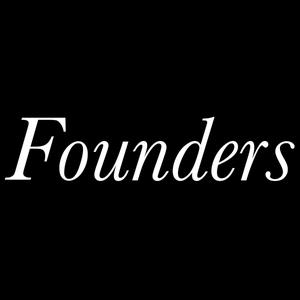 Founders
Founders
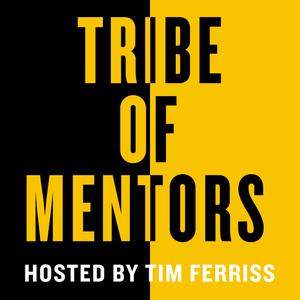 Tribe of Mentors
Tribe of Mentors
 Naval
Naval
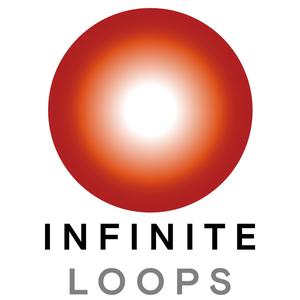 Infinite Loops
Infinite Loops
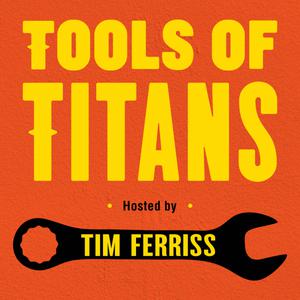 Tools of Titans: The Tactics, Routines, and Habits of World-Class Performers
Tools of Titans: The Tactics, Routines, and Habits of World-Class Performers
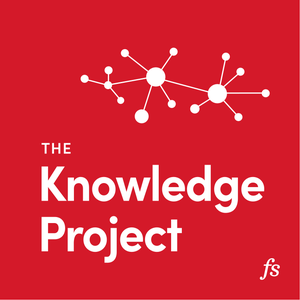 The Knowledge Project with Shane Parrish
The Knowledge Project with Shane Parrish